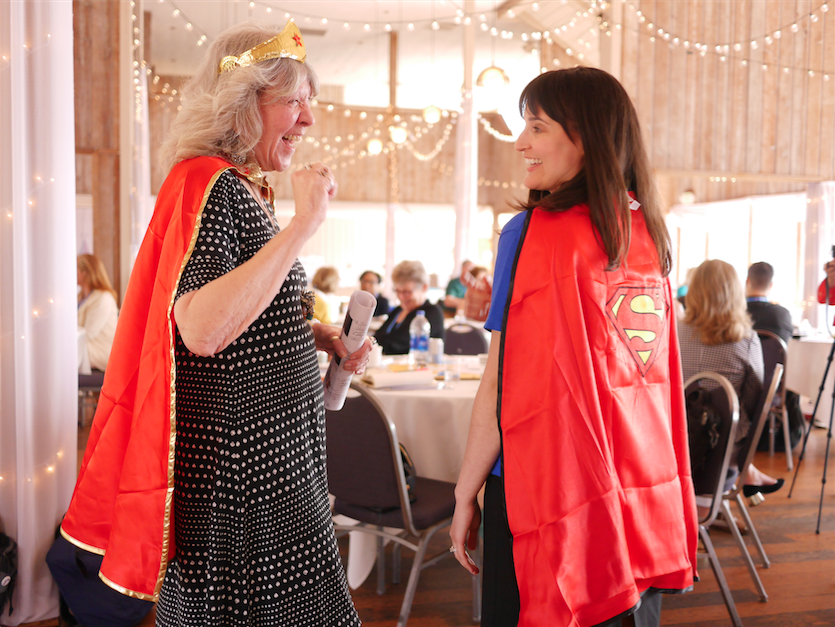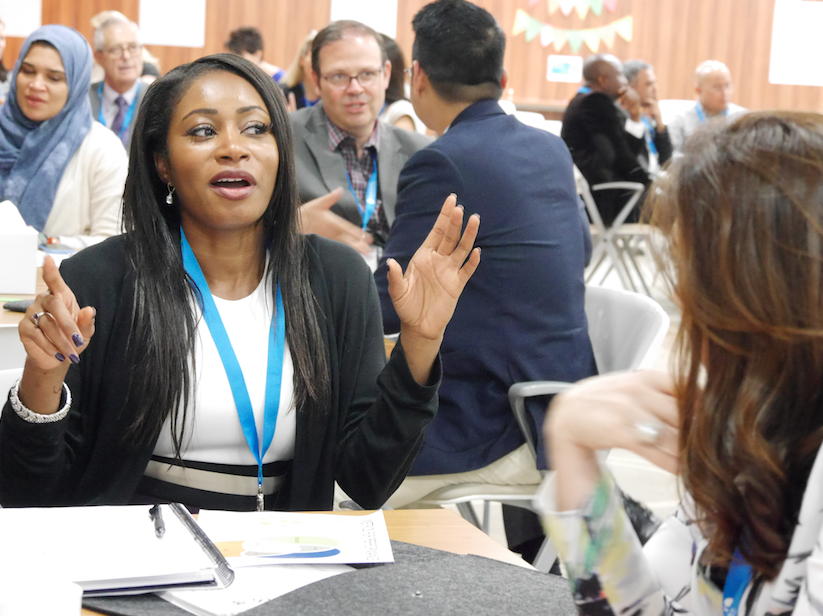

Get practical tips to practice emotional intelligence
Learn strategies to live a more intentional and meaningful life.
Download the Practicing EQ eBook FREE
How does social emotional learning improve educational effectiveness? How can students, teachers, parents, and administrators use the skills of EQ to get better results?
Emotional intelligence steps onto the global stage at the United Nations’ first EQ conference. What happened there?
Read MoreCultivating a growth mindset has been strongly linked to greater happiness and achievement in life. Here are 9 tips + strategies to give your kids the gift of a growth mindset.
Read MoreTo create an environment that’s fit for the future, we need to help children grow the internal leadership skills that will allow them to build that reality. Here’s how.
Read MoreHeading back to school, mixed with hope & fear. How can we help students (anyone) feel belonging and acceptance as they are — while also supporting them to keep growing?
Read MoreHow do we bridge the gap between childhood and the workforce? How can Higher Ed use EQ to improve outcomes? EQ.EDU Moving SEL into Higher Ed conference explores these topics.
Read MoreHow do schools become vibrant, joyful, inclusive communities? School leaders intentionally build them with teachers, students and family collaboration.
Read MoreWhat does research show about using assessments to guide effective implementation of social emotional learning? Here are highlights from a new journal article.
Read MoreAfter horrific events in the news, do you share your feelings w kids/students… or try to reassure by hiding your feelings? How can we talk with children about these difficult feelings?
Read MoreFor teens struggling with a brutal addiction to solvents, hope and healing seem far away. Traditional culture & the Medicine Wheel combine with emotional intelligence to support a path forward for the children, and their counselors.
Read MoreThe key to happiness is strong, lifelong relationships – and you build those with empathy. Here’s how to increase empathy in children.
Read MoreThey’re unmotivated, cranky, and stressed… What’s going on with youth these days? New research says teens are even more stressed than adults — and burnout is on the rise. Here’s the story, straight from those in the middle of it.
Read MoreFor kids across Asia, Dragonfly’s outdoor ed and service learning program is all about self-discovery through EQ. Find out how this unique model is helping kids develop their interpersonal skills.
Read MorePrincipals have a special role in promoting social emotional learning. Find out what the research shows works best.
Read MoreDo you want to know how to understand people more easily? A starting point is a wide-spread lie we tell others — and ourselves. Here’s how to connect on a deeper level.
Read MoreWhen feelings run hot, how can we use emotional intelligence to fuel our commitment for positive change… and support children to create a better world?
Read MoreMutually respectful relationships are a foundation for human rights. So how can children & adults use emotional intelligence to strengthen relationships?
Read MoreLike charming snakes requires special skills, teaching EQ in schools gives students training for life to help make positive choices and healthy relationships.
Read MoreCan a 10-week EQ Course change the Emotional Intelligence scores of students in a rural Appalachian high school class? Eastern Kentucky is comprised of tiny towns tucked into valleys between the steep Appalachian Mountains in the heart of coal country. The region has some of the highest drop-out rates in the nation, as well as […]
Read MoreNew research is shedding light on what middle schoolers are feeling about school and learning — and what makes social emotional learning (SEL) effective for young adolescents. They crave authenticity and connection, but are not finding these at school.
Read MoreWhat is emotional intelligence and why does it matter in education? What does current research say about “social emotional learning”?
Read MoreWhen children are experiencing “big emotions,” a principal finds that a simple process for emotional intelligence makes all the difference.
Read MoreWhat makes a powerful question? Teachers, coaches, parents who want to generate deeper thinking need to know these three levels – with video.
Read MoreResearch shows social emotional learning improves classroom performance. How does it work & what does brain research show about emotion in learning?
Read MoreRecently a student told me that she dreads the “SEL” class in her school because, “the teacher is so fake.” There are three key traps that lead to this kind of failure in social emotional learning, and some simple-but-challenging solutions to find a balance in inquiry, planning, and power.
Read MoreA sociogram is a useful tool for educators who want objective data on a classroom’s social dynamics – here’s how they work.
Read MoreThis study examines the relationship between social-emotional instruction and academic competencies of motivation and goal setting, critical thinking and problem solving, collaboration and leadership, and agility and adaptability. The researcher embedded a social-emotional curriculum called Self-Science designed by Six Seconds in her third grade classroom during the 2010-2011 school year. Findings indicated increased motivation […]
Read MoreI went to a funeral last week. Mary C. Laycock was a wonderful mathematician and teacher. I worked with her at Nueva School in Hillsborough, CA and knew her for many years. Her students adored her and her ‘Mary’s Math.’ One lesson with Mary and you would develop an insight into math that would stay […]
Read MoreIn this speech, Six Seconds’ Chairman Karen McCown shares the definition, process, and purpose of teaching emotional intelligence. Karen founded the renown Nueva School in 1967 as a laboratory for integrating academic and emotional development for gifted children (it went on to win two Federal Blue Ribbon Awards for Excellence in Education).
Read MoreThe Six Seconds model turns EQ theory into practice for your personal and professional life. Emotional intelligence is the capacity to blend thinking and feeling to make optimal decisions — which is key to having a successful relationship with yourself and others. To provide a practical and simple way to learn and practice emotional intelligence, Six Seconds developed a three-part model in 1997 as a process – an action plan for using emotional intelligence in daily life.
Read More